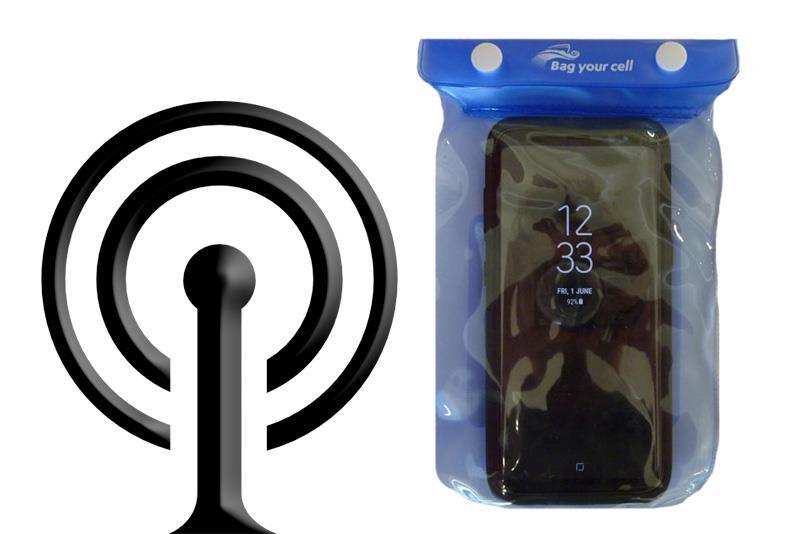
Relying solely on a cellphone when boating, what’s the problem?
by Tasman Salter 3 Sep 2018 22:56 UTC
4 September 2018

Mobile phones are at best a back up communication device for a VHF radio © Coastguard Boating Education
My flatmate recently co-purchased a trailer sailer with her friend, a confident, self-taught sailor. She explained to me that her friend would actively operate the vessel and teach her sailing skills when they took the boat out.
I was impressed – but had my concerns. What happens if her friend should fall overboard or become otherwise incapacitated? If this scenario played out on the weekend, what would she to do to get the situation under control?
We established that, bearing in mind her current lack of skills, she might be unable to do anything to stop the progress of the boat, or turn around and pick him up if he fell overboard. She did say that there were two smartphones below deck to make quick contact with 111. She said her network has great coverage and her friend added they were rarely sailing very far from land. Calling 111 (or *500 for Coastguard) is absolutely the right thing to do in an on water emergency, but only if you have a cellphone coverage.
People generally believe that their phone is an essential tool should an emergency occur.
On land, this is a relatively safe assumption.
Top telco Vodafone claims to cover 98.5% “of places where Kiwis work and play” [click here for coverage map] with Spark not far behind.
But it’s important to put this statement in context, because it may mean that a network may cover considerably less than the total percentage of a given area, particularly when applied to a marine environment. In fact, a little investigation reveals both networks make it clear in the fine print that this degree of coverage is most relevant to areas where there is a reasonable sized population. I had to point out to my flatmate and her friend that the population is not typically concentrated on the water where they were likely to be sailing. How many people do you know who live out in the water? Factor this in and it is possible that there will be gaps in coverage.
So it is NOT a safe assumption that a cell phone can be solely relied upon in an emergency when sailing. Sure, great to have in a dry bag on the boat, but you’re really going to need something a little more robust, purpose built and with a longer range to get appropriate coverage on the water. It was actually the sailor who, at that point, suggested that a VHF radio would be a useful addition. I added this was well complemented by a Maritime VHF Radio Operator Certificate, because unlike a smartphone, operators are required by law to be trained. It is important to know how to use this communication equipment in an appropriate and effective way, particularly in an emergency.
VHF radios are designed for the marine environment and are more robust than cell phones. Channel 16, the international calling and distress channel, is monitored around the clock. In addition, other mariners in the vicinity will hear distress calls broadcast over Channel 16 and may be able to render assistance. Urgent safety information and weather reports for boaters are also broadcast over marine band radio channels as an added bonus.
Weigh it up and it’s pretty clear the cellphone in a dry bag makes a great backup, particularly equipped with Coastguard’s new app, but it shouldn’t be your only communication device for a day on the water.
To my relief, my flatmate and her buddy decided to get a VHF radio and enrol in the Coastguard Boating Education online VHF course.
VHF Radios are available at all good marine supplies stores, but there’s currently a better way to get one! Coastguard Boating Education is running a promotion to win an Icom M25-EURO VHF Radio when you sign up for a Maritime VHF Radio Operator Certificate before the 30th of September.
For full terms and to sign up to win, follow the link by clicking here